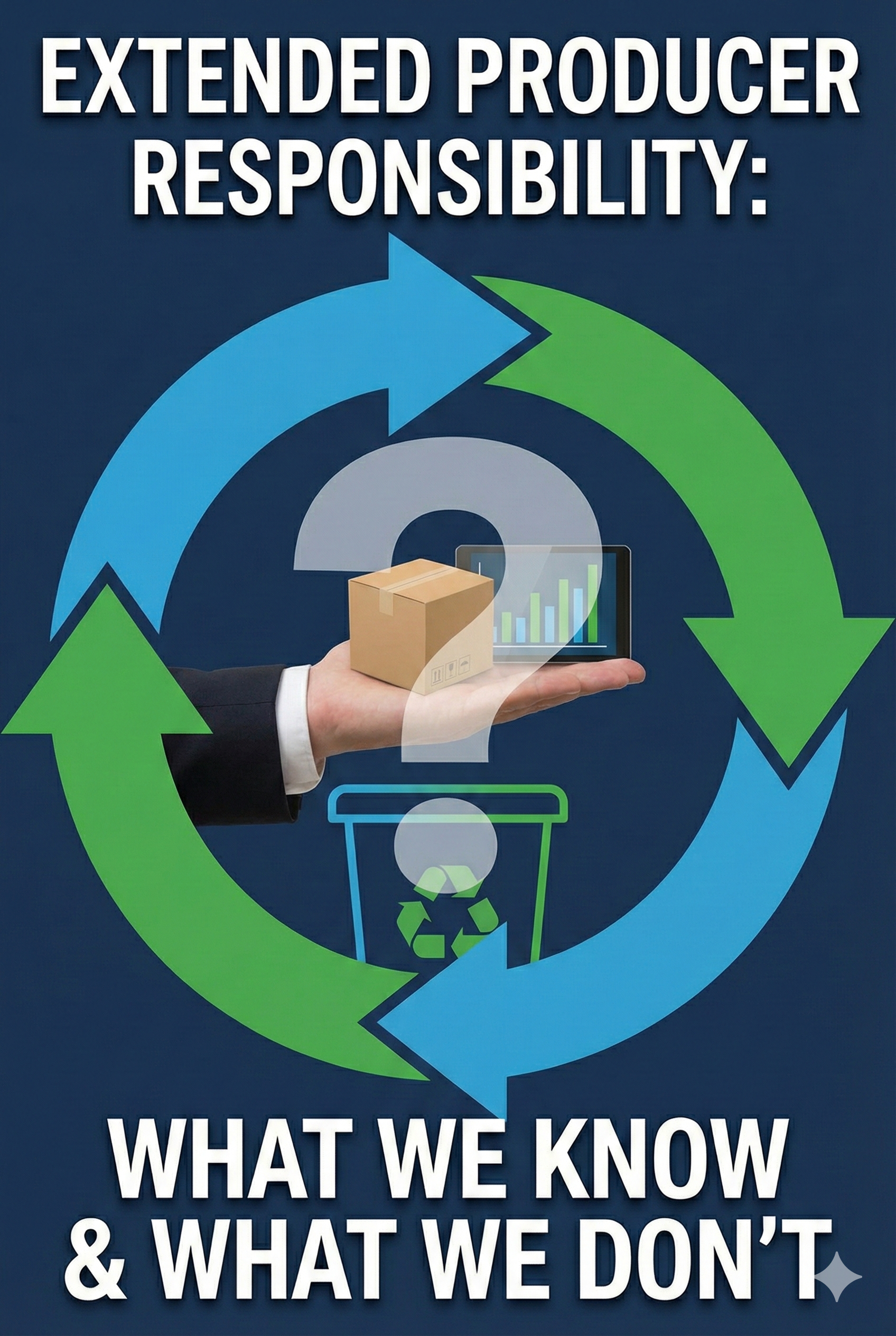Are EPR Policies Working? New EREF Report Says We Can’t Be Sure
RALEIGH, NC – July 2025: The Environmental Research & Education Foundation (EREF) has released a comprehensive literature review on Extended Producer Responsibility (EPR), providing the waste industry with a critical reality check: despite the increasing adoption of EPR policies globally, there is still insufficient data to accurately assess whether these programs are delivering on their environmental and financial promises.
The review explores EPR policies across the U.S., Canada, and Europe, examining the materials targeted, strategies employed, and current efforts to measure success. While case studies suggest potential benefits like improved recycling rates for hard-to-manage materials, EREF’s analysis found a lack of standardized, transparent data across jurisdictions and Producer Responsibility Organizations (PROs). This gap makes it nearly impossible for industry professionals to draw definitive conclusions on EPR’s effectiveness.
“The industry needs data, not assumptions, to guide investments and operations,” said Dr. Bryan Staley, EREF President and CEO. “What this review makes clear is that better measurement, more transparency, and region-specific strategies are essential to understanding EPR and its ability to effect operational changes that meaningfully contribute to increased circularity.”
Until better data is available, EPR’s operational impact remains unclear, but proactive engagement with policy development and how to track performance/success could present an opportunity for stakeholders to find synergy.
Read the full report here.




